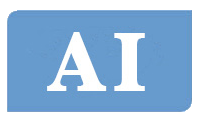About us
The purpose of the Academic Institute is, between science in general, the – university science in particular, as well as other sectors of society – primarily of small and medium-sized enterprises – to initiate practice-relevant relationships and promote.
The AI plans to support the members and the free market economy and the education and training of individuals in business and administration in general. Furthermore, the research of all interests in science and various project studies commissioned.
In view of the increasing complexity of current and future problems here is on interdisciplinary and multidisciplinary cooperation between science and industry in the center of all efforts. Here, the AI will not only be a research facility in the traditional sense, but also as a ‘virtual’ institution other places organize and coordinate, ie constitute networks each appropriately expertise available potentials.
Staff
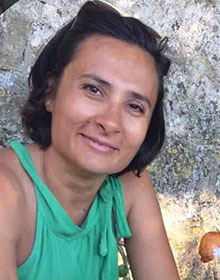
Crina Barac
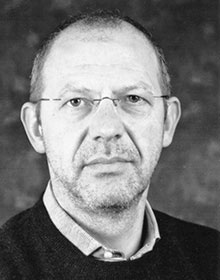
Friedrich Holleis
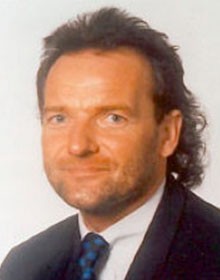
Hans-Wolfgang de Heidendorf-Mohnssen
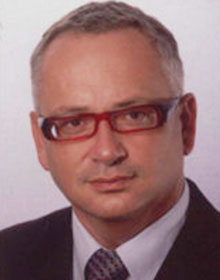
Peter de Heidendorf
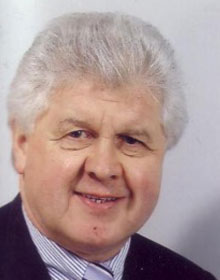
Peter H. Löffler
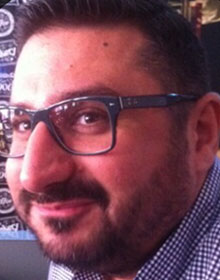
Ramiz Momeni
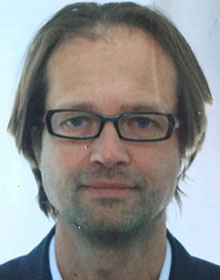
Tilman Fritsch
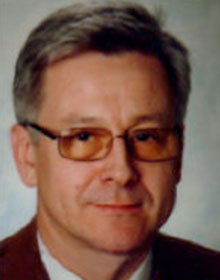
Vladimirs de Starcevs
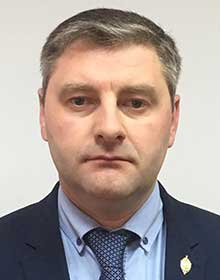
Igor Lebedev
CORRESPONDENCE PARTNER
University “Agora” in Oradea, Rumänien – www.univagora.ro
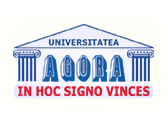 Agora University of Oradea is a higher education institution of private law and public utility, founded in 2000 by Agora Foundation, accredited by ARACIS in 2010 and validated by the Romanian Parliament by Law 59/2012, as a part of national system of higher education in Romania.
Agora University of Oradea is a higher education institution of private law and public utility, founded in 2000 by Agora Foundation, accredited by ARACIS in 2010 and validated by the Romanian Parliament by Law 59/2012, as a part of national system of higher education in Romania.
On 24.04.2012 I was elected rector by all teachers and students of the University Agora, the legislature from 2012 to 2016, and in 2016 I was re-elected for the mandate 2016-2020.
Rector legally represents the University Agora of Oradea (UAO) in the National Council of Rectors in relations with the Ministry of National Education and its subordinate entities or advisory (ARACIS, CNATDCU, UEFISCDI etc.), with central and local government, educational institutions and national research and abroad, with domestic and international public bodies.
Although young and small, with two faculties (Faculty of Economics and Faculty of Law and Administration), University Agora is extremely dynamic and active. Instead of a quantitative prefer qualitative development.
Without false modesty, Agora University have some performance difficult to achieve even some old and larger academic institutions: 5 research centers (two international), a publishing house editing 5 international scientific journals in English language (one of which is indexed in ISI Web of Science), 5 international conferences in English, a computer laboratory, a forensic laboratory, three rooms with smart boards for videoconferencing courses, three lecture halls with over 100 seats, platform for e- functional learning, and 10 POS-DRU successfully projects.
If you agree a higher quality education, through modern teaching technologies, in full transparency and legality, come with the greatest confidence to University Agora.
University “Aurel Vlaicu” in Arad, Rumänien – www.uav.ro
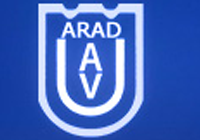 “Aurel Vlaicu” University of Arad is a distinct academic community functioning under the provisions of the Romanian Constitution, of the laws and regulations applied to the educational system. UAV follows and promotes the European conventions regarding higher education. The University benefits from a highly trained academic staff and high quality endowments for didactic and scientific activities. The University is structured now in 9 Faculties and 12 Departments, having more than: 15.394 students; 477 academic staff, over 45.516 m2 of educational premises, course and seminar halls, computerized laboratories with last generation technology. The Academic Curricula, for all the Faculties are connected with European Credits Transfer System (ECTS) since 1999, so that Diplomas as well as periods of study may be recognized all over EU. Through Erasmus/LLP Programme the students can attend, for a period of time, the courses of another university in our country or abroad. The University guarantees full academic recognition for all Erasmus students that take part in the mobility programme.
“Aurel Vlaicu” University of Arad is a distinct academic community functioning under the provisions of the Romanian Constitution, of the laws and regulations applied to the educational system. UAV follows and promotes the European conventions regarding higher education. The University benefits from a highly trained academic staff and high quality endowments for didactic and scientific activities. The University is structured now in 9 Faculties and 12 Departments, having more than: 15.394 students; 477 academic staff, over 45.516 m2 of educational premises, course and seminar halls, computerized laboratories with last generation technology. The Academic Curricula, for all the Faculties are connected with European Credits Transfer System (ECTS) since 1999, so that Diplomas as well as periods of study may be recognized all over EU. Through Erasmus/LLP Programme the students can attend, for a period of time, the courses of another university in our country or abroad. The University guarantees full academic recognition for all Erasmus students that take part in the mobility programme.
“Transport & Telefcommunication Institute – University for Applied Sciences” in Riga, Latvia – www.tsi.lv
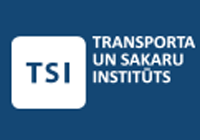 Transport and Telecommunication Institute (lat. Transporta un sakaru institūts – TSI) is a modern university with the almost centennial history.
Transport and Telecommunication Institute (lat. Transporta un sakaru institūts – TSI) is a modern university with the almost centennial history.
TSI is the university-successor of the legendary RKIIGA (Riga Red-Banner Civil Aviation Institute) and RAU (Riga Aviation Institute). In the present-day appearance TSI was established in 1999. Nowadays TSI is the only one private technical college university type in Latvia, where you can get higher education in Russian, Latvian and English languages. The Institute received permanent accreditation in Latvia as a higher education institution. The Institute provides with the academic programs in the following directions: transport and logistics, computer sciences, electronics and telecommunication, economics and management, aviation transport. In June 2013 all education directions of TSI received accreditation for the maximum period, 6 years.
In TSI you can get higher professional education of first and second levels, bachelor and master degrees, prepare and defend a doctoral dissertation. TSI is conducting the diversified research scientific work. According to the results of expert evaluation Transport and Telecommunication Institute is the only one among private colleges included in the list of leading scientific institutions, acting in Latvia. Total amount of institute graduates – more than7500. Current amount of students (2013/14 academic years), about 2500. There are students from Russia, India, Kazakhstan, Moldova, Uzbekistan, Ukraine, Azerbaijan, UK and other countries in TSI. The most popular education directions for foreign students: logistics, information technologies, aviation and economic.
NOBELS COLLOQUIA®
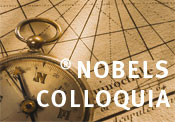 Connecting brains that is the original and winning idea that our Founder and Chairman Giovanni Battista Vescovo has founded the success of PROMOSTUDIO and of its annual event Nobels Colloquia® on.
Connecting brains that is the original and winning idea that our Founder and Chairman Giovanni Battista Vescovo has founded the success of PROMOSTUDIO and of its annual event Nobels Colloquia® on.
PROMOSTUDIO is the all Italian, “piccola ma bella” (small but lean and nice), consulting company that was founded in 1985 in Venice, specialized in executive education, finance and economics.
PROMOSTUDIO delivers the most advanced and innovative management techniques, as well as the most fascinating thoughts of the best international economists to the professional and entrepreneurial worlds.
The idea was born of the fruitful encounter with MIT professor Franco Modigliani, the 1985 Nobel Laureate in Economics, whom Vescovo had a very close professional and personal collaboration with, until 2003.
Again, the idea of an international event that involves several Nobel Laureates in Economics as well as renown economists, was conceived together with Franco Modigliani, but also with Robert Solow and Amartya Sen: a venue where such minds can meet, debate, and exchange ideas on current topics. The idea took inspiration of Edgar Morin’s thought “Challenging Ideas for a Common Destiny”.
In 2001, on the occasion of the 100 years of the Nobel Foundation, PROMOSTUDIO organized the first edition of Nobels Colloquia® where 12 Nobel Laureates joined, flying in from directly from Stockholm.
Our partner for EC and middle east are the European Board of Trade (Brussles) and the Academic Institute, located in Salzburg.
Nobel Laureates in Economics:
Joseph Stiglitz: end of April/middle May and first half of June tbc
Michael Spence: from February until middle June
Eric Maskin: middle February, April, end of May/beginning of June and end of June/first week of July
Angus Deaton: June
Daniel McFadden: March/April and May/June
Christopher Pissarides: from February until the end June
Robert Engle: May/June tbc
Edward Prescott: second hal of June, July and end of August
Jean Tirole: from March to middle June
Economics & Finance:
Philippe Aghion: from February until the end of June
Alberto Alesina: from middle May until the end of June
Jacques Attali: from February until middle June
Richard Baldwin: from February until the enf of June
Alberto Bisin: June and July
Michele Boldrin: end of February, end of April to bginning of July
Andrea Boltho: from February until middle July
Francois Bourguignon: from middle March to middle May and June
Francesco Caselli: February/March and May/June
Jean-Paul Fitoussi: from February to beginning of July
Daniel Gros: from February until beginning of July
Noreena Hertz: from middle February until the end of June
Kerry Kennedy: first hal of March, May tbc
Randall Kroszner: June
David Laibson: June
Jean-Pierre Lehmann: February/March, from May to end of june
Edward Luttwak: end Februray/beggining of March, April/May
Marc Melitz: from end of April until middle July
Ugo Panizza: from March until begunning of June
Fabrizio Perri: June/July
Eugenio Proto: from middle February until the end of June
Lucrezia Reichlin: March/April and June
Jeremy Rifkin: from February to the end of June
Kenneth Rogoff: March and from May until middle June
Dante Roscini: from middle May to July
Andrei Shleifer: March/Apri and May/June tbcl
Allen Sinai: February and April/May
Fabrizio Zilibotti: from March to the end of June
Luigi Zingales: beginning of April and May/June
Charles Wyplosz: from April to the end of June
Management:
Dan Ariely: middle March/middle April, first hal May, middle June/middle July
Nigel Barlow: from February until middle July
Julian Birkinshaw: from February to middle June
Simona Botti: February, March and June
Tal Ben-Shahar: middle March and beginning of May
Frank Cespedes: second half of May
Raphael Cohen: from March until the end of June
Matt Dickinson: from middle February until middle June
Doron Eyal: from February to middle June
Isaac Getz: from middle April to the end of June
Roger Hallowell: middle February, second half of March and second half of June
Peter Hinssen: February/March and May/June
Michael Jacobides: first half February and from March to the end of June/ beginning of July
Richard Jolly: first half and end of February, first half March, second half of April, May and June
Robert Kaplan: second half/end of May
Philip Kotler: October
Costas Markides: March, April and May/June tbc
Lluis Martinez-Ribes: from February to the end of March, from middle April to the end of June
Andrea Mazzon: from March until middle July
Mario Alonso Puig: from February to the end of March and middle April to the end of May
Jonas Ridderstrale: March/April, second half May and middle June
Alex Rovira: from February until middle/end June
Carlos Salum: from February to middle July
Nader Tavassoli: March/April and June
Fernando Triad de Bes -New Collaboration: from February to middle June
Dave Ulrich: from August until November 2017
Freek Vermeulen: from middle March to the end of June
CONTACT/IMPRINT
Academic Institute of Interdisciplinary Sciences
5027 Salzburg|Postfach 47|Austria
Court: LG Salzburg | ZVR: 788610594
M: office@hochschule.or.at
TERMS OF USE
All materials on this website are subject to copyright protection. AI explicitly permits use of all data for private, not commercial use. An explicit reference to AI’s copyrights and ownership rights must be made whenever information is copied from this website. Contents must not be altered in any way and must not be used on other websites or networked PCs without AI’s permission. Any infringement of these terms carries the obligation of an immediate destruction of all printed or downloaded contents. The assertion of any further claims for damages is explicitly reserved.
Data protection:
AI wishes to inform you that subject to current national and European data protection provisions your data shall be processed and used for handling your inquiries. AI warrants the confidentiality of your data and shall refrain from selling, leasing or making them available to any third parties.
Internet services:
AI websites also include links to websites of other providers. AI in no way warrants their completeness or appropriateness for specific purposes. Use of the contents provided on such websites shall occur at the user’s sole risk.
